The Next Big Investment Boom: Learn the Secrets of Investing from a Master and How to Profit from Commodities
$15.20
The aim of The Next Big Investment Boom is to introduce readers to an investment trend that he believes is going to dominate the world over the next decade – that of commodities such as coffee, cocoa, and crude oil. However, the book is intended to help readers to invest – not to help them trade. Shipman believes that long-term investing is generally less stressful and usually more financially rewarding. He has learnt that it is far easier to profit from an investment’s progress over months and years than it is over the next few days, hours or even minutes. This book also studies the forthcoming rise in the price of commodities – which will mean the return of high inflation and ultimately the return of high interest rates.
Author’s Note:
In recent history there have been two major investment booms, namely in technology stocks and property. Both were extremely rewarding for those who were able to spot the trends early enough and didn’t outstay their welcome at the end. However, investors are now struggling to find anything that will provide them with a decent return. The most recent boom in residential property appears to have ‘shot its bolt’ with values now beginning to readjust to more realistic levels, and although conditions have improved for the stock market it still languishes well below its previous highs with little prospect of a sustainable major bull market developing soon. You can’t even get a decent return from deposit accounts or bonds with interest rates so low. So, where can one look?
Commodities. Yep, stuff like gold and oil and sugar and cotton. Not very sophisticated, not very modern, not very exciting, you might think, but you’d be wrong. Despite the phenomenal and well-documented recent rise in the price of oil and its related products, you may be surprised to learn that on an inflation-adjusted basis commodity prices are at their lowest levels since the Great Depression of the 1930s.
In this book, I’m going to show you which markets to look at, what’s creating the shift in their values and how to participate in them. The reason most investors make bad decisions is through lack of knowledge, so the more educated you can become about investing your money, the better your chances of not only avoiding bad investment products and advice but also of participating in the right investments at the right time and making yourself some decent money.
Aside from your own personal health and that of your loved ones, nothing is more important than ensuring you are financially equipped to have a comfortable life. Money may not buy happiness but it’s great at removing most of life’s stresses, and, let’s face it, it doesn’t matter whether you are in your 20s, 30s, 40s, 50s, 60s or 70s, it’s never too early or too late to try to make a bit more money.
Contents:
- Take responsibility for your money
- Self-directed investing
- The psychology of successful long-term investing
- Financing your investments
- Developing an investment strategy
- Commodities – the next investment boom
- The commodity markets
- Commodity investment options
The Next Big Investment Boom: Learn the Secrets of Investing From a Master and How to Profit From Commodities By Mark Shipman pdf
| Author(s) | |
|---|---|
| Format | |
| Pages | 194 |
| Publication Year | 2006 |
7 reviews for The Next Big Investment Boom: Learn the Secrets of Investing from a Master and How to Profit from Commodities
Only logged in customers who have purchased this product may leave a review.



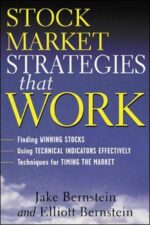
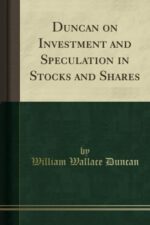

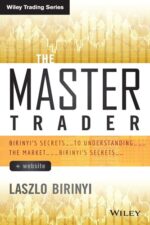

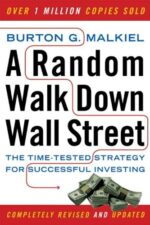
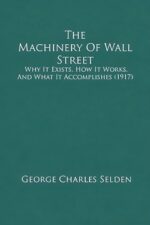
Jericho Stark (verified owner) –
great i liked it but the investment tactics should be taken with a grain of salt as it oversimplifies things.
Erick Patel (verified owner) –
excellent
Keily Phillips (verified owner) –
This book certainly opened up some aspects of investment that I had not been aware of, in a very readable and understandable way.
This book is now about 2 years old as I write this, and everything he wrote then about commodities has come to pass, as we have seen record prices for oil, gold, and even wheat very recently.
I cannot really agree with the cautions of reviewer “noj”; if you read the book carefully and use the same amount of caution as you would with any other investment decision, I don’t see why it should be particularly dangerous. And even putting money in the bank could be regarded as dangerous these days; and if not dangerous, it’s arguable whether money in the bank will hold its value, whereas if you invest in the way that M.S. suggests, you could make your “savings” grow substantially.
I would agree with criticisms of some other reviewers, that there is not enough detail about how spread-betting works, but this is not really a book about spread-betting, and there is plenty of information on the web about it. Similary there is nothing about some of the newer variations on S.B., such as binary bets. Maybe this is covered in his newer book.
Lian Crosby (verified owner) –
Excellent book about investing in commodities. Also explains very useful entry and exit strategies in simple terms so that it’s easy to understand.
Kamilah O’Donnell (verified owner) –
I give Shipman the credit for tackling the history of several investment booms and smoothly explaining the phsycology and human factor behind hype. However, I don’t see the book relevant when it comes learning about investing in commodities. I wish it explained more how to study the fundamental of each one instead of including an elementary schoolbook paragraph. If you have an investment background and know a bit about commodities, this is not for you. I would have rated the book higher had it been relevant to commodities as it claimed it was.
Andrew Peters (verified owner) –
I was reading the book and two thirds of it has to do with investing in general and the theories of investing and the history of investing. All of which i knew and was almost done the book. I recommend the book for a amatuer in that way, which is why i gave it a fair or ok.
I finally get to commodities and it discusses them in general like Oil is a commodity and so is Gold, and goes through a list of items considered commodities, but not much more. It mentions a couple of funds, and discusses a confusing English method of investing, and not being English, that meant nothing to me. However, if English or living their would be helpfull, and well to be honest i did not come out of the book with the specifics necessary to invest in commodities and make a ton of money in the next boom. I am still invested in commodities now but with no knew insights from the book. I do want to mention that futures are listed as a method for investing but i did not find a method in book to decipher which commodity and when for futures and how to apply it.
Could i have missed something in reading it ? Sure , i mean it was well very dry reading, especially when arriving at the commodites section. I may try and read the commodities portion again to better understand futures, however it was hard reading that section.
Madeline Mayo (verified owner) –
Mr. Shipman has written an excellent, slim volume on futures investing. (Notice that I said “investing”, not “trading”.) “The Next Big Investment Boom” is not for anyone learning how to daytrade S&P Minis, swing trade energy markets, etc. Shipman discusses irrational markets of the past, like Tokyo real estate in the 80s, the tech bubble of the 90s, and everyone’s perennial favorite, tulipmania in Renaissance Holland. From there, Shipman advocates a long-term view of commodities much like that of Jim Rogers in “Hot Commodities”, the main factors fueling commodities price rises being increasing demand in Asia and other emerging economies, coupled with low profitability in recent years having forced many producers out of the markets. Unlike Rogers, Shipman combines long-range fundamental analysis with simple technical analysis a la Richard Donchian. Position sizing is simple: use a maximum of double margin (i.e. if the margin for a contract is $1,000 then you should have $3,000 per contract invested). The only part of the book that I did not find useful was the chapter on taxation, because Shipman is British and the book’s discussion of taxation is not useful for traders in the United States. Other than that, this book is an excellent read!